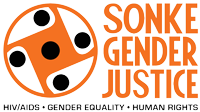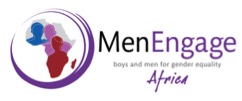Sonke Gender Justice (“Sonke”) and MenEngage Africa stand with the people of Nigeria and the global community in remembering the more than 200 girls from Chibok who were abducted a year ago, and call on the government of Nigeria, the African Union (AU), African leaders and global leaders to take action to find out what happened to the girls who are still missing, and to urgently redouble efforts to rescue any surviving girls.
The 276 school girls were abducted by the terrorist group, Boko Haram (which means “Western education is forbidden”), from their hostels atthe Chibok Secondary School, a government-run boarding school in the early hours of April 15th, 2014. Fifty-seven girls managed to escape in the days following their abduction, but 219 of them are still missing, despite a huge international social media campaign, with celebrities, individuals, and even United States First Lady Michelle Obama, sharing selfies with the viral slogan #Bringbackourgirls that was used on twitter more than one million times in the first month following the abduction.
The attack on the Chibok Secondary School remains the largest abduction1 by Boko Haram since it increasingly started targeting schools and students in early 2012, worsening already dire education levels in the north-eastern part of Nigeria, which has the lowest primary and secondary school net attendance ratio in the country.
There is no official confirmation of what may have happened to the girls since they were abducted. All speculation is horrifying – that some have been forcibly married off – including to Boko Haram insurgents themselves; that some were trafficked to neighbouring countries; that some may have been used as suicide bombers or shields in Boko Haram operations; or that some have been murdered.
“It is unacceptable that the government of Nigeria has neither found the girls, nor found out what has happened to them a year later,” says Itumeleng Komanyane, the International Programmes and Networks Manager at Sonke Gender Justice which, along with HopeM, co-coordinates MenEngage Africa, a regional body of hundreds of organisations in Africa that work to engage men and boys in the promotion of gender equality and gender justice, “All over the world, girls are being oppressed, trafficked, marginalised and brutalised. The international community must send a strong message that we will not tolerate such atrocities.”
“Nigerian citizens have been protesting and reminding their government not to forget about the girls all year long,” says Czerina Patel, Sonke’s Communications Manager, “The global community can use this anniversary as an opportunity to renew international pressure, and to tell both current President, Goodluck Jonathan, and President-Elect, Muhammadu Buhari that they must take urgent and serious action now.”
Patel suggests that celebrities, media, social media personalities, global leaders and people all over the world create a “social media storm” on April 15th and revive the iconic hashtag #bringbackourgirls to tell global leaders, the African Union and Nigeria’s government to not allow the more than 200 girls from Chibok to “simply disappear,” adding that international agencies and governments must not back off until the question as to where the girls are, is answered.
Citizens from countries all over the world can also lend support to the Global Week of Action in Nigeria co-ordinated by the Bring Back Our Girls (BBOG) group this week by also using the hashtags #ChibokGirls and #NeverToBeForgotten.
Sonke and MenEngage Africa call on global leaders, governments, UN and EU agencies, the people of Nigeria, civil society organisations including women and child rights groups, the media and people all over the world to demand that the African Union and the Nigerian government reprioritise the efforts to locate and rescue the abducted girls, and to recognise that the failure to rescue the girls a year later is an international crisis that deserves serious attention.
Our thoughts are with the families and loved ones of the kidnapped girls, and all the people of Nigeria, as they mark one year of pain, without any closure, and a stressful uncertainty about where the girls are, and whether or not they are still alive.
MEDIA CONTACTS
- Itumeleng Komanyane
International Programmes and Networks Manager, Sonke Gender Justice and MenEngage Africa
011 339 3589
Itumeleng@genderjustice.org.za - Czerina Patel
Communications Manager, Sonke Gender Justice
021 423 7088
czerina@genderjustice.org.za - Bafana Khumalo
Senior Programmes Specialist, Sonke Gender Justice
011 339 3589
bafana@genderjustice.org.za



